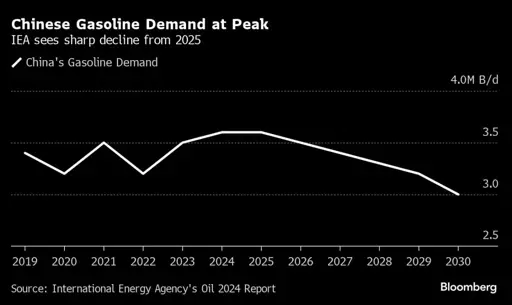Don’t threaten me with a good time!
Fuckin good
On one hand, good. Great!
On the other hand, I live in the United States of Trumpistan. So many nincompoops here would be happy to drive a smoke-belching pickup truck to their office job while China speeds away from us with all their fancy book-learnin’ technology.
I thought you were going to say they would be happy to drive their smoke belching pickup trucks off a cliff and became briefly enthusiastic about the idea.
Bad news for Russia.
Also bad news for US: “drill baby, drill”! Oops
Worst of all, bad news for the environment, as US says “I told you so, plenty of cheap gas for my SUV”
Sorry, a bit frustrated with my fellow citizens
I’m confused, so if China reducing their oil consumption is bad for the environment, does that mean China burning more oil is good? Call me skeptical.
Demand needs to drop, that’s always a good thing. Yes, in the short term prices may also drop and some dickheads will get a good deal, but prices will correct as the industry shrinks and production drops. The more demand drops, the less economical large refineries become, and we can finally enjoy the death spiral of a contracting industry.
There are other (better) ways to kill the industry like a carbon tax and banning production, but in the spirit of trying all of the approaches this is still positive.
US is way too big an oil consumer, way too slow on fixing it. Slowin it down even more is just bad, and we’re big enough polluters that it won’t just affect us
After reaching 50% share in July, it is up to over 53% in October. https://english.www.gov.cn/archive/statistics/202411/21/content_WS673f370ec6d0868f4e8ed4b2.html
EVs make better cars. Faster and quieter, cheaper operation costs, and profit/emergency potential from V2G (or just to home), and future robotaxi. Charging infrastructure expands with success/penetration. Even in US and Europe, EV models that are cheaper than their ICE equivalents before rebates are already announced/on the market.
IEA projections are always behind. Natural gas use in Europe and China is also down. and will continue its pace.
EVs are heavier, put more wear on the roads (for the same class of vehicle) and more microplastics into the environment from the tires. They don’t fix noise pollution, road safety or congestion.
We need better public transit, not robotaxis.
Fuck good, let’s have perfect.
They may not fix noise pollution, but they seem to reduce it. At least at urban speeds where I can be near them when they’re driving, them sure seem to be significantly quieter than gas cars.
Also electric vs gas has nothing to do with robotaxis.
robotaxis need a lot of electronics/computing and so a large battery. A hybrid can charge that battery, but it is close to 50c/kwh electricity cost. V2G is a more obvious near term game changer. Can pay for cost of car over lifetime, or at least provide negative fuel costs. At any rate, an EV robotaxi will outcompete an ICE one. It also has the advantage of driving to a charging station during any downtime.
That’s a fair point, the integrated battery does make managing the equipment easier.
Wait, why are EV tires more polluting than gasoline tires?
Because the car is heavier overall, which means they put more wear on the tires per mile driven.
Hell yeah
Can’t wait for prices to go up everywhere else!
cheap gas? sure.



